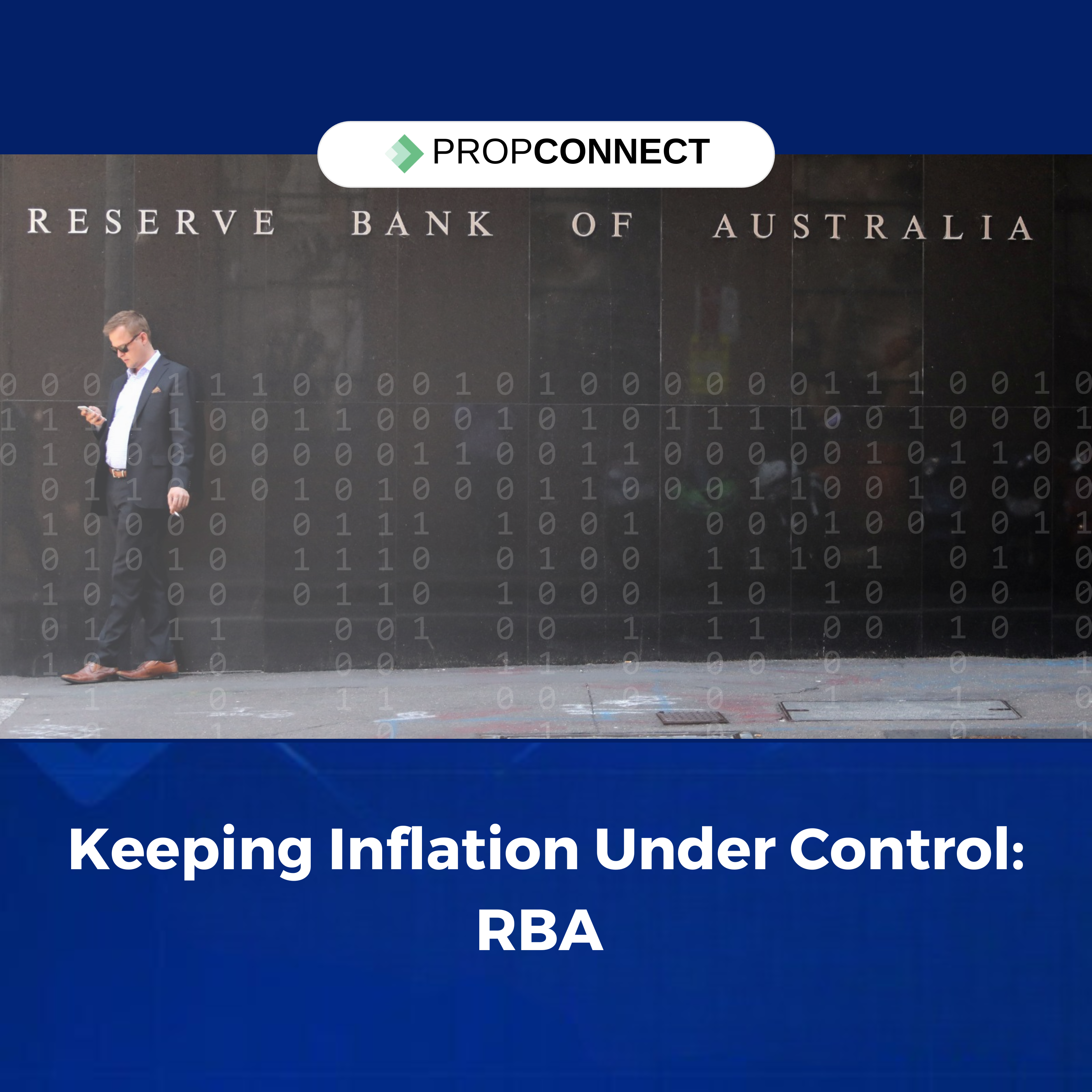Articles
Keeping Inflation Under Control: RBA Maintains Cash Rate Target at 4.35%
In Australia, inflation has surpassed its peak but remains excessively high and exhibits greater persistence than what was initially anticipated a few months ago.

Reserve Bank of Australia's Board during its meeting today opted to elevate the cash rate target by 25 basis points to 4.35 percent. Additionally, there was a corresponding 25 basis points increase in the interest rate paid on Exchange Settlement balances, which now stands at 4.25 percent.
In Australia, inflation has surpassed its peak but remains excessively high and exhibits greater persistence than what was initially anticipated a few months ago. The most recent data on Consumer Price Index (CPI) inflation suggests that while the inflation of goods prices has continued to ease, many services continue to experience robust price increases. Although the central projection indicates a continuing decline in CPI inflation, it appears that progress is slower pace than previously expected. It is now expected that CPI inflation will reach approximately 3.5 percent by the end of 2024, at the upper boundary of the 2 to 3 percent target range by the end of 2025. In light of these developments, the Board has determined that an increase in interest rates today is warranted to enhance confidence in achieving the target level of inflation within a reasonable timeframe.
The Board maintained interest rates unchanged since June, following a 4-percentage point increase since May of the prior year. Their assessment was that the elevated interest rates were actively contributing to the establishment of a more sustainable equilibrium between supply and demand within the economy. Additionally, they observed that the effects of the more recent rate hikes would continue to permeate the broader economy. Consequently, they made the decision to keep rates steady to allow for a sufficient period to evaluate the consequences of the interest rate increment thus far. Specifically, the Board made it clear that they would closely monitor developments in the global economy, trends in household expenditures, and the projections for inflation and the labor market.
Since its August meeting, the Board has received refreshed information regarding inflation, the labor market, economic activity, and the revised forecast. The data emphasizes an increased risk of sustained high inflation. Although the economy is going through a phase of below-average growth, it has shown greater resilience than anticipated in the first half of the year. Core inflation exceeded earlier expectations, notably within a wide spectrum of services. Labor market conditions have eased somewhat but remain tight, and housing prices are continuing to surge nationwide.
Concurrently, elevated inflation is exerting pressure on real incomes, resulting in sluggish growth in household consumption and dwelling investment. Given the projection of below-average economic growth, employment is expected to increase at a slower pace compared to the labor force, with the unemployment rate gradually rising to approximately 4.25 percent. This increase is more moderate than previously predicted. Wage growth has picked up in the past year but still aligns with the inflation target, provided that productivity growth improves.
Restoring inflation to the target within a reasonable timeframe remains the primary focus for the Board. Elevated inflation poses challenges for everyone and disrupts the functioning of the economy. It erodes the value of savings, impacts household budgets negatively, hinders businesses in their planning and investments, and exacerbates income inequality. Furthermore, if high inflation were to become ingrained in people's expectations, rectifying it later would be significantly more costly, involving even higher interest rates and a more substantial rise in unemployment. Thus far, medium-term inflation expectations have aligned with the inflation target, and it is crucial for this alignment to persist.
Substantial uncertainties still exist in terms of the future outlook. The persistence of services price inflation has been unexpectedly prolonged in other regions, and a similar situation could unfold in Australia. Questions linger regarding the time it takes for monetary policy to take effect and how businesses will adjust their pricing and wages in response to the slower economic growth, especially with the labor market remaining tight. The trajectory of household consumption also remains uncertain, with numerous households feeling financial strain, while others benefit from rising housing prices, significant savings reserves, and increased interest income. On a global scale, there is substantial uncertainty surrounding the prospects for the Chinese economy and the consequences of international conflicts.
The necessity for additional tightening of monetary policy to secure the return of inflation to the target within a reasonable timeframe hinges on the evolution of data and risk evaluations. The board will persist in its practice of diligently overseeing developments in the global economy, local demand patterns, inflation outlooks, and the labor market when reaching decisions. The board remains steadfast in its dedication to restoring inflation to the target level and is ready to take any essential measures to accomplish this goal.

